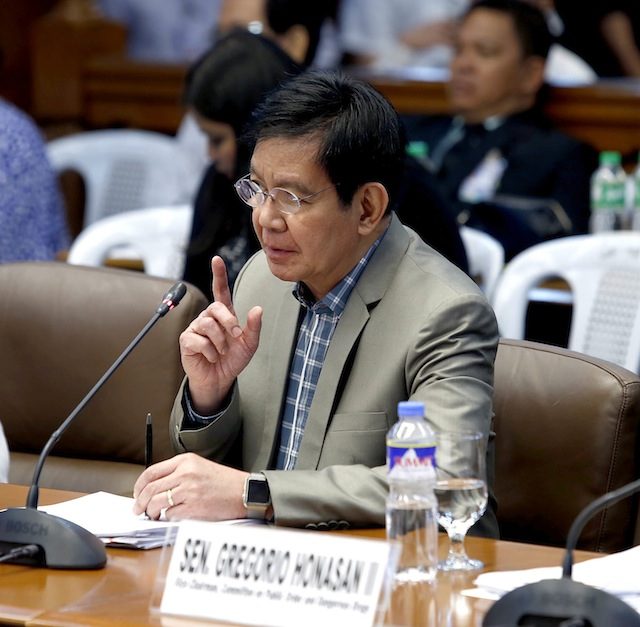
MANILA – The new controversial law granting subpoena powers to the chief of the Philippine National Police (PNP) and the Criminal Investigation and Detection Group (CIDG) slipped past Congress with barely a whimper.
For a measure that would bestow immense power to the heads of these two agencies, only one senator, Ralph Recto, and seven partylist lawmakers from the Makabayan bloc, opposed it during final voting.
“Darker times are indeed looming with the enactment of this law along with the current human rights situation in the country today,” Bayan Muna Representative Carlos Zarate said.
“This law would grant additional powers to the PNP-CIDG that can potentially be subjected to abuse and further human rights violations,” he said.
Zarate said the newly-enacted law gives the PNP “Marcosian era-like subpoena powers.”
“Ironically, while the PNP is now given this Marcosian era like subpoena power, it refuses to become fully transparent and accountable for the government’s bloody war drugs,” he added.
The new law, Republic Act No. 10973 amends Republic Act No. 6975 or the Department of Interior and Local Government Act of 1990 by now granting powers to the PNP chief and the director and deputy director for administration of the CIDG to “administer oath and issue subpoena and subpoena ad testificandum or subpoena duces tecum in relation to its investigation.”
“The subpoena shall state the nature and purpose of investigation, shall be directed to the person whose attendance is required, and in the case of a subpoena duces tecum, it shall contain a reasonable description of the books, documents, or things demanded which must be relevant to the investigation,” the law said.
It added that, “Failure to comply with the subpoena and subpoena duces tecum shall authorize the filing of a case for indirect contempt under the Rules of Court with the Regional Trial Court.”
Responding to a question, the law’s chief champion in the Senate, former PNP chief Panfilo Lacson, described as a crucial “safeguard against abuse” of the law the provision that limits such subpoena powers to only the three mentioned officers.
Before the new law was passed, only the courts, the Office of the Ombudsman, the Department of Justice, National Bureau of Investigation, Philippine Drug Enforcement Agency, Napolcom, Bureau of Internal Revenue and the Cybercrime Operation Center of the Cybercrime Investigation Coordination Center were authorized to issue subpoenas.
At the House of Representatives, it was filed as House Bill No. 4863 on January 2017 by Representatives Francisco Jose Matugas II, Romeo Acop, Horacio Suansing Jr., Teodoro Montoro, Johnny Ty Pimentel, Manuel Jose Dalipe, Gwendolyn Garcia, Gary Alejano, Jose Sy-Alvarado and Henry Oaminal.
On the date of its period of sponsorship on October 10, 2017 it was also approved on second reading. On November 21, 2017, it was approved on third and final reading with a 193-7 vote.
At the Senate, the bill got the nod of the senators on third and final reading with 20 affirmative votes and one negative vote, courtesy of Recto.
The measure was authored and sponsored by Senator Lacson, chairman of the Senate committee on public order and dangerous drugs.
“It seems absurd that the Criminal Investigation Unit (CIU), now known as the CIDG, with a mandate to undertake monitoring, investigation and prosecution of all crimes of such magnitude and extent as to indicate their commission by highly-placed or professional syndicates and organization, has lost its subpoena powers,” Lacson had said in his sponsorship speech.
Lacson, a former PNP chief, said it would be difficult for the PNP’s investigative arm to complete a thorough investigation with the removal of its subpoena powers.
Without the subpoena powers, he pointed out, investigations would be incomplete and government resources would be wasted.
Senate Minority Leader Franklin Drilon – who was then Senate President Pro Tempore – explained that that there is “every reason to grant such authority to the PNP Chief who has control and supervision over lower-ranked officials, like the director and the deputy director of the CIDG.”








